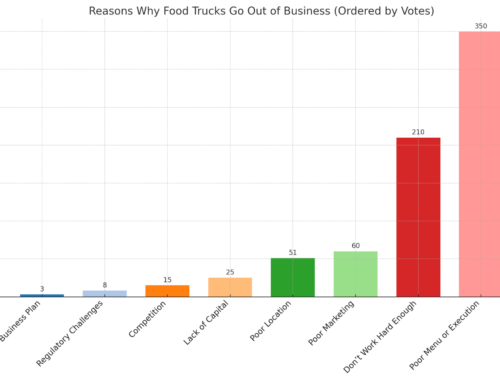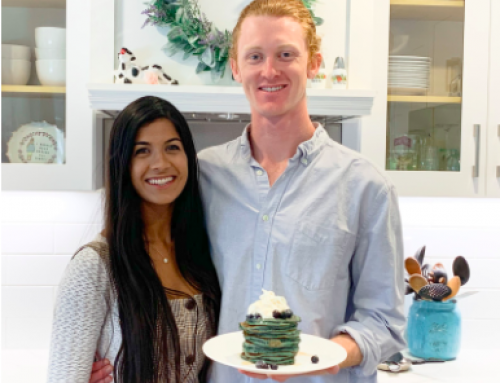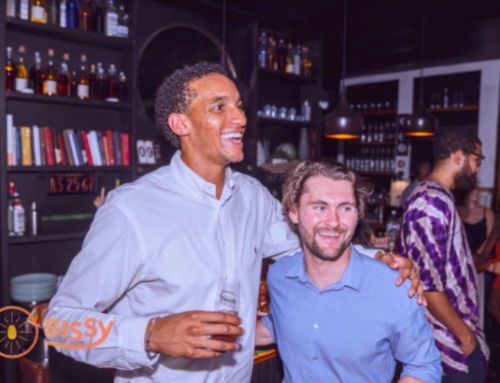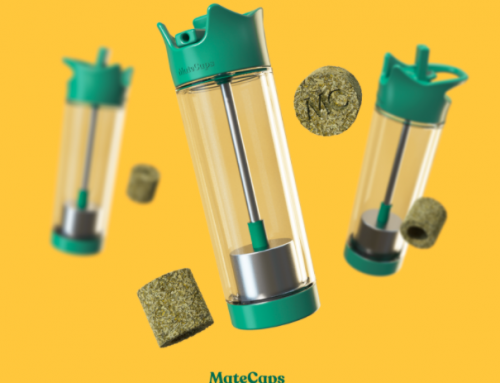Hello! Who are you and what food business did you start?
Hi! My name is Anthony Bourbon, and I founded Feed. in January 2017. Feed. is a French startup which creates complete, balanced and healthy meals in convenient formats (bars, drinks, shakers, snackmeals).
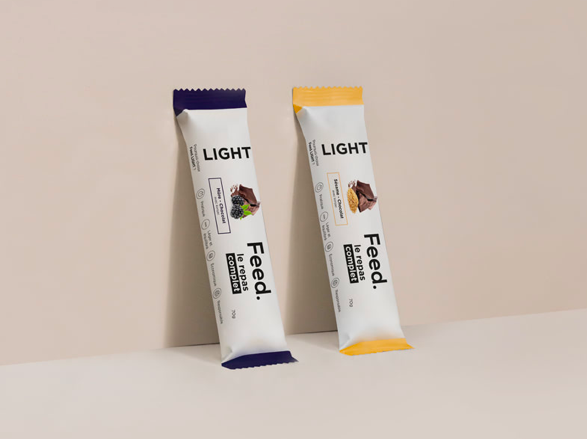
Our products are made in France from vegan, gluten-free, lactose-free, and non-GMO ingredients.
1 Feed. = 1 convenient meal that can be taken on-the-go, anywhere, and everywhere (when traveling, at the office, for sport, on public transport, etc.).
Today, Feed. can be summed up to over:
- 50 products
- 70 people
- 4500 points of sale in France, Switzerland and Benelux
- 500 additional points of sale by the end of 2019 in Spain, Italy and the UK
- 20+ million euros raised
What’s your ballpark sales volume?
We currently sell tens of thousands of meals a day at Feed.
What’s your backstory and how did you come up with the idea?
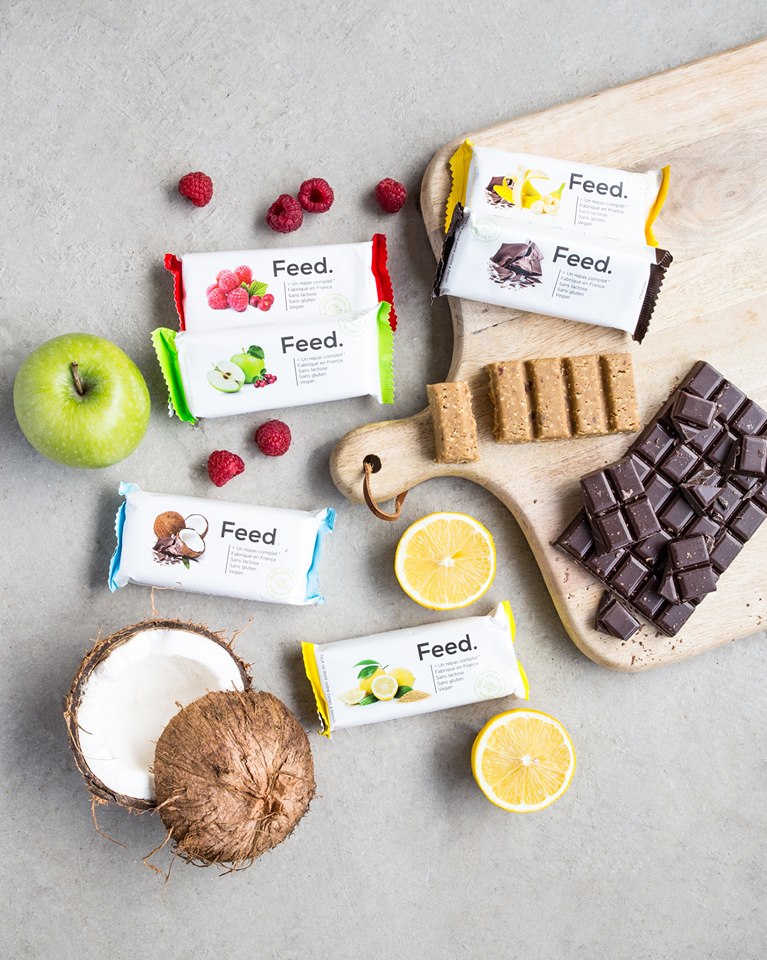
Coming from a poor background, I am the opposite of the typical parisian startup CEO stereotype. I believe that it is essential to shake up the system, and for merit to have more weight than birthright and nepotism.
I have faced hunger twice in my life; once due to financial difficulty when I was young, and later due to a lack of alternatives and time during an intense office job.
At the time, I turned to brands offering meals in powder form, but I was dissatisfied by the taste, the presence of GMOs and the quality of the ingredients.
It was then that I came up with a more convenient, affordable and healthy solution for busy people who don’t necessarily have the time or the desire to have a traditional meal, without nonetheless having to compromise on taste; smartfood ‘a la française’. A couple of months later, I founded Feed..
Take us through the process of developing and testing your recipes.
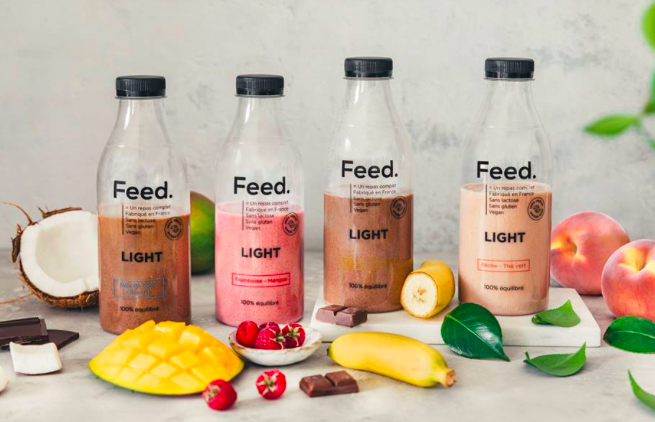
I started off by making my own recipes: I mixed vegetable flours, fruits, and blended vegetables together. I then surrounded myself with dieticians and nutrition specialists in order to create a product that would be able to reach a wider audience thanks to the demanding specifications that I imposed: vegan, gluten-free, lactose-free, non-GMO and made in France.
This was challenging, as I was not particularly familiar with the field of nutrition. Yet, I worked hard to develop my knowledge and understanding of the topic as it was very important for me to be able to create a nutritionally optimal product which was at the same time accessible to the most possible people.
As a consequence, it became clear very early on that my recipes also had to be vegan, gluten-free and lactose-free. With such demanding prerequisites, it also became necessary to recruit individuals with specific competencies in nutrition.
It was a great challenge for me and Feed. to be able to create a product from the outset which could both meet such high standards and also satisfy our consumers’ tastes. At the same time, collaborating with nutritionists opened up a whole other dimension to the work, both on a scientific and social level, and became another key element in being able to defend my vision, project and concept to investors, the media, and the wider public.
However, these demanding specifications (vegan, gluten-free, lactose-free, non-GMO…) were a double-edged sword. They became a real barrier, and especially with my providers, who were not necessarily capable of delivering products at such a high standard.
Yet, I was convinced that it was absolutely imperative to maintain this level of quality for our consumers, and so I set myself the task of finding the first collaborators who would be capable of meeting our expectations.
With my team of nutritionists and dieticians, I eventually found our first producer for our meals in powder form, and finally for our meals in bar form. We still work together today; they were able to grow with us, and we have not once regretted placing our trust in them from the very beginning.
In terms of the timeline of our products, we first came up with the recipes for the powder (sweet and savoury), and then for the bars. Today we have over 50 products in different and innovative formats: ready-to-drink, spreads, Feed. Crunchy etc.
Related Reading: How We Started a $10 Million Dollar Spice and Seasoning Empire
Our packaging has also greatly evolved since I launched Feed. It has become more practical and more transportable so that our products are as convenient as possible for our customers. Indeed, today we offer powder in single units as well as in smaller ready-to-drink bottles (500ml vs 700ml).
Finally, to take the brand further, we eventually decided to industrialise and externalise our production in order to keep up our rapid growth and to be able to respond to a demand which just kept getting stronger.
In this manner, in under three years, the concept grew into a startup that has raised over 20 million euros, employed over 70 people, and has distributed products in over 4500 points of sale across Europe.
Describe the process of launching the business.
In order to launch Feed., I had to put my own savings on the line. Investors were quick to respond thanks to the numerous conferences I attended where I presented the brand.
In public speaking, if you radiate energy and drive investors will naturally gravitate towards you, as few entrepreneurs are determined and ambitious. At first, they bet more on the entrepreneur than on the project itself, but then this relationship evolved. This can be translated by the following scheme:
- Pre-seed- Bet on the entrepreneur
- Seed- Bet on the team
- Series A- Bet on the traction
- Series B- Bet on the revenue
- Series C- Bet on the unit economic
Thanks to this we first managed to raise 500k, then 3 million, then 15 million and my team has grown from 2 to over 70 people today.
Before the website even went live, we already had a few hundred pre-orders. We listened to our customer returns and based ourselves off their experiences and comments in order to keep improving our recipes, website, packaging etc., which I believe is a key component of starting a business.
Today we deliver in the whole of Europe and we are always looking at ways to improve in order to be able to provide the best user experience possible.
The most important lessons I have learnt is to believe in your project, to not think too hard, to never give up, to be resilient, to be ambitious, to not set yourself any limitations, and to be well surrounded; the first people you recruit are absolutely crucial.
But, most of all, I believe that it is essential to not be afraid of making mistakes – in order to be successful, you have got to take on lots of different initiatives, and some will inevitably fail.
Since launch, what has worked to attract and retain customers?
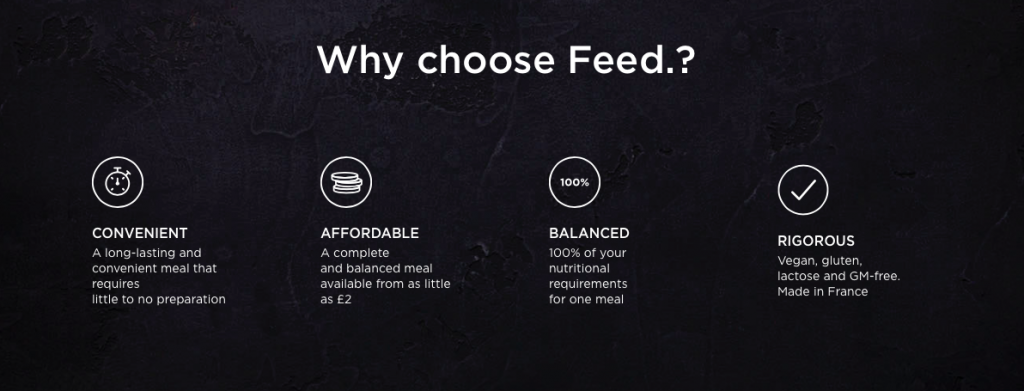
The most important factor in keeping customers is to listen. It is essential for them to feel heard and understood, and so it is necessary to keep improving your products, to not become complacent, to keep reinventing the brand, to keep innovating, and not to be afraid to cut the products that aren’t working.
It is also important to have a rapid growth from the outset, which involves developing a strong, and well targeted, communications strategy (Ads, TV, Press).
When launching a new brand it is crucial to think of demand before even thinking about the product itself; in order to launch a successful company you need a 50/50 ratio between product and business.
You can have the best product in the world but if there’s no demand or a good business strategy it will never work.
How are you doing today and what does the future look like?

We are lucky to have a very profitable business, although this is not our utmost priority. Our priority is growth.
We are looking to keep our offer attractive in order to keep generating investments, to grow and develop our line, and to ultimately expand the company internationally.
Through starting the food-based business, have you learned anything particularly helpful or advantageous?
Not having a typical background in food or nutrition was a surprising advantage, as it enabled me to have a clear vision and to be free of any preconceptions.
Additionally, my financial knowledge and competencies were very useful on the business front as it made raising substantial sums very early on a feasible task, which was crucial to get the business going.
In terms of mistakes that were made, I think that we recruited too many people too fast, which means that we lost our ‘DNA’, which was originally one of our greatest strengths.
Our integration programme was not specific or rigorous enough, and so our new recruits were too disconnected from our original values and did not share our vision and drive to the same extent.
Fearful of turning into the stereotypical startup whose employees simply seek a paycheck, we reworked our onboarding and have focused our efforts into recruiting motivation-driven like-minded people who are also keen to join a social and human adventure, not just a company.
In reality it’s a mistake that we are happy to have made, as it has enabled us to keep improving, to grow, and to change our internal policy for the better.
What are the most important tools in your business?
Our most important asset was social media. Facebook ads were particularly helpful as they enabled us to better understand and target our future consumers all while managing our spending.
What have been the most influential books, cookbooks, podcasts, or other resources?
In my mind, the most inspiring book I came across is ‘The Art of War’ by Sun Tzu.
Unlike the typical impression that one tends to get about startups, they are very difficult to launch; investors are, in fact, not Angels, everybody wants to take your place, and it is an extremely competitive and demanding environment.
For this reason, it is key to be ready to confront any and all situations, and to be prepared to fight for your vision.
Advice for other food entrepreneurs?
The most important advice I can give is to believe in yourself, to work hard to get what you want, to be determined, to be resilient, and to never give up.
Where can we go to learn more?
- Official Website: https://www.feed.co/uk/en/
- Facebook https://www.facebook.com/feedsmartfood/?brand_redir=2247648422220573
- Instagram : https://www.instagram.com/feed.global/

